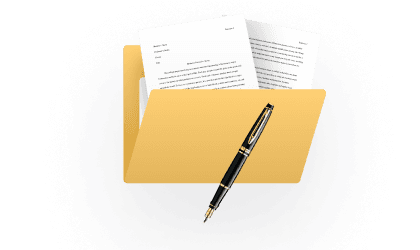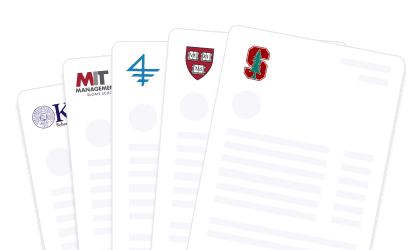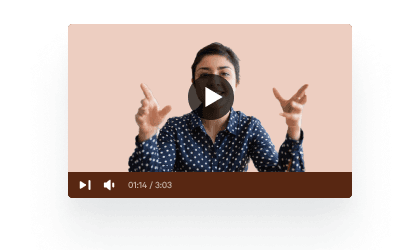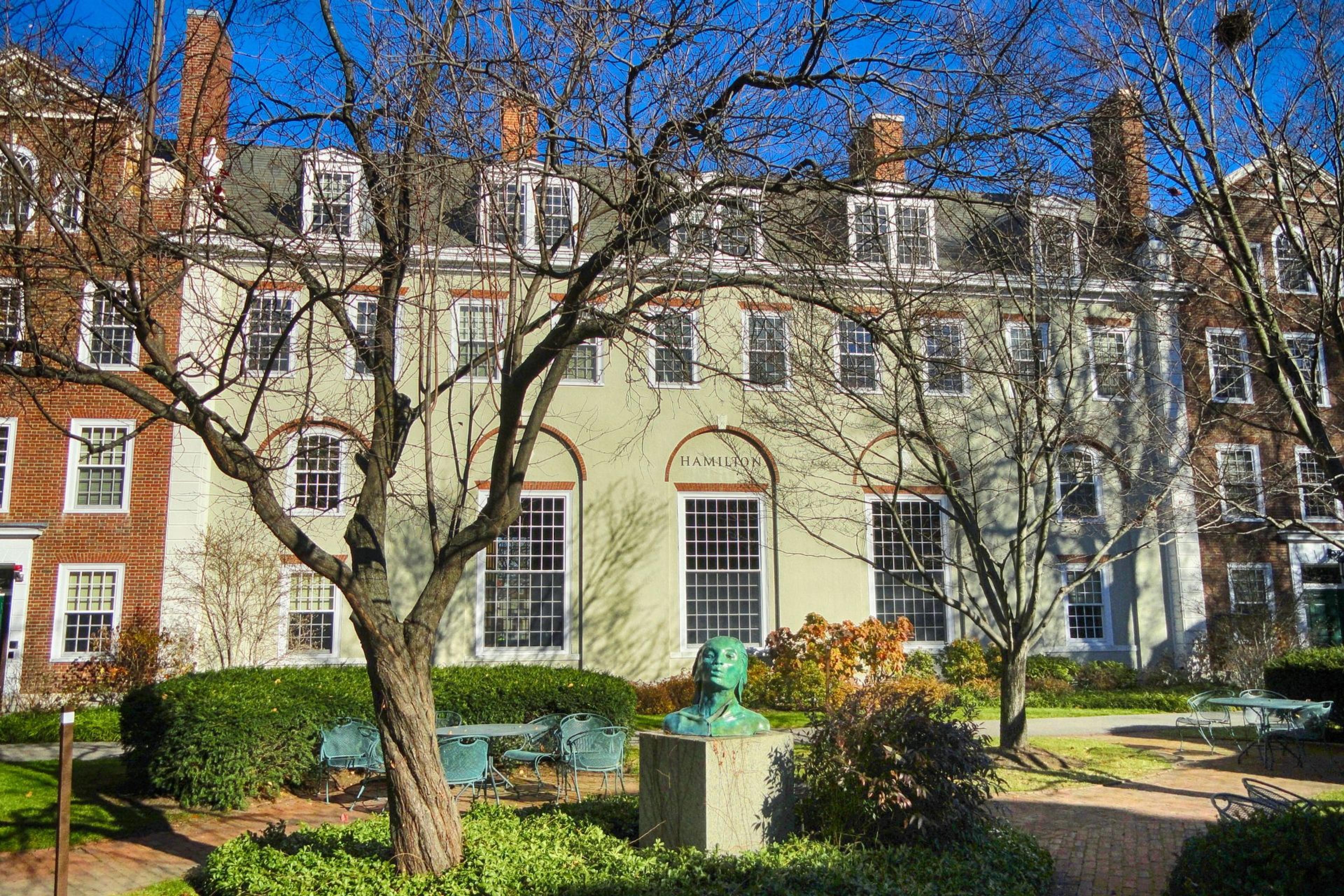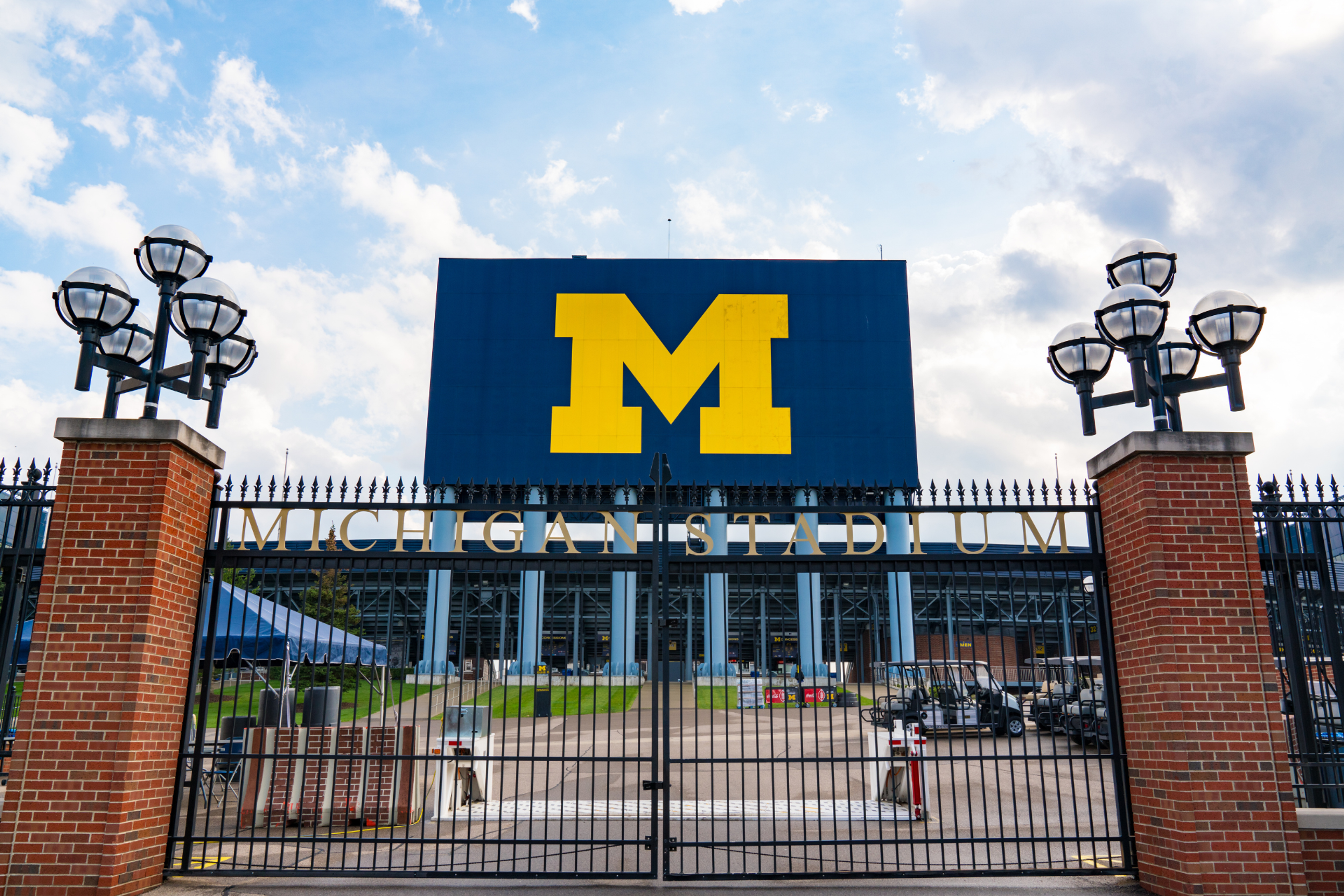Princeton Interview Guide: Questions, Expert Tips & How to Prepare (2025)
Nail your Princeton interview with real questions, standout example answers, and expert-backed tips from this guide by a Princeton alum and interviewer to help you prepare, connect, and impress.

By Alen P.
Admissions coach with a first-gen background; Former Princeton Interviewer
Posted June 13, 2025
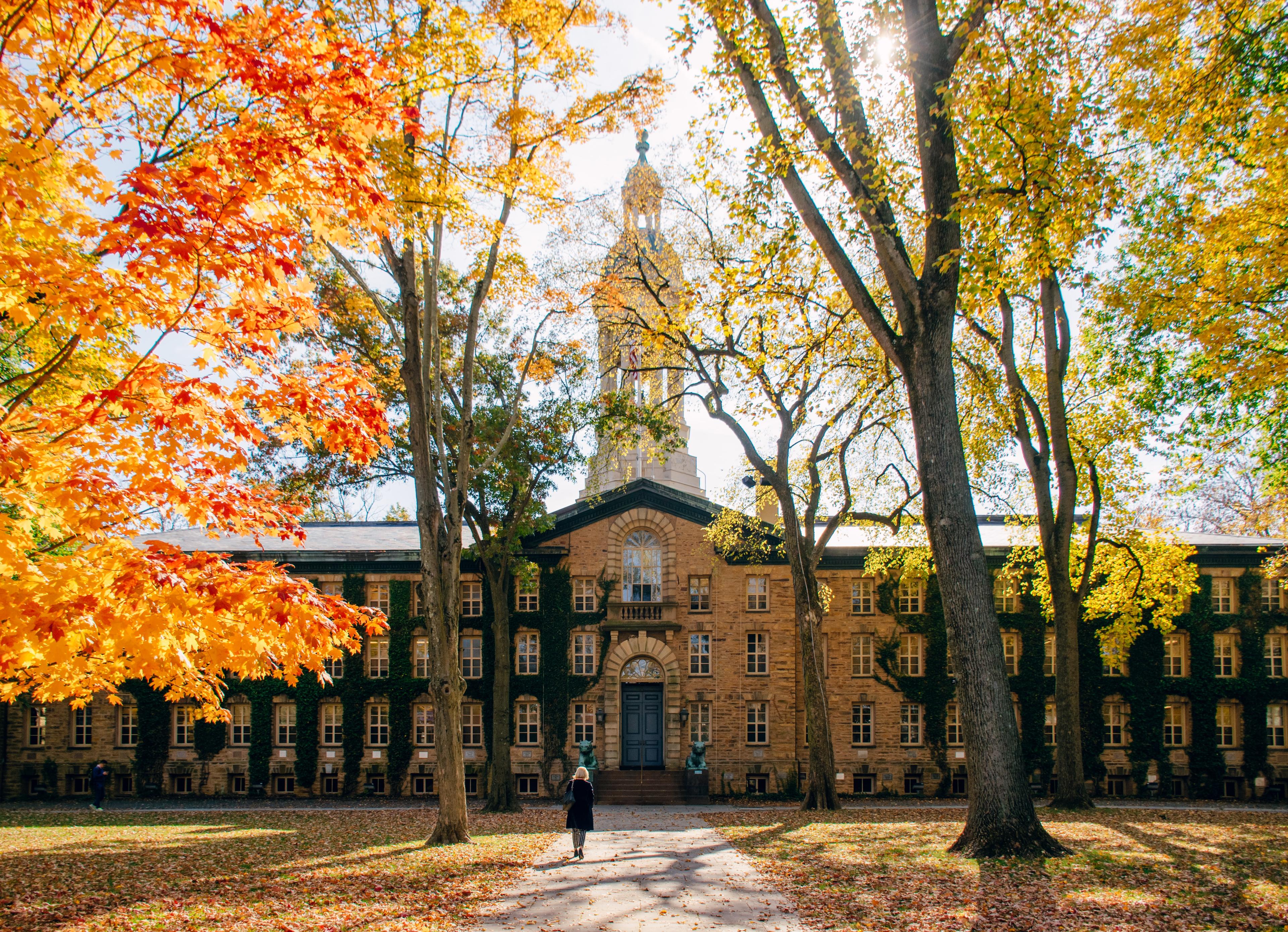
Join a free event
Learn from top coaches and industry experts in live, interactive sessions you can join for free.
Table of Contents
For many applicants, the Princeton interview is one of the most nerve-wracking parts of the college admissions process, but it doesn’t have to be. Whether you’re an REA applicant or applying Regular Decision, this guide will walk you through what to expect, how to prepare, and how to turn your Princeton alumni interview into a genuine, relaxed conversation.
As a Princeton alumnus and former interviewer, I know exactly what these interviews look and feel like and, more importantly, what matters to the school and how to use the time to stand out. Here is everything you need to know. For help preparing for your Princeton interview, or putting the rest of your college applications together, reach out to me! I'd love to help you tell the best possible version of your story.
Princeton Interview Process
- Length: 30-45 minutes (or sometimes up to 60-90 minutes if the conversation is going well)
- Interviewer: Alumni
- Style: Informal, conversational style
Princeton University offers optional alumni interviews through the Princeton Alumni Schools Committee, but they are not required. However, if you’re offered one, take it. A strong interview won’t make or break your application, but it can leave a positive impression and give you a valuable opportunity to share more about your academic interests, goals, and personality. If you choose to opt out of the interview, it will not put you at a disadvantage in the admissions process.
The admissions office matches applicants with alumni interviewers based on geography and availability. If no alumni are available, you won't be penalized. Interview invitations typically go out between November and December for REA applicants, and between January and February for RD applicants. Make sure your internet connection is stable if it’s virtual!
Princeton notes on its site that it cannot guarantee that every applicant will receive an interview as it depends on the availability of alumni in your area. They do manage to contact the vast majority of applicants each year, but if you do not receive an interview for any reason, it will not put you at a disadvantage since the interview is optional. They also do not offer on-campus interviews.
What’s the Purpose of the Princeton Interview?
Think of the interview as a two-way street: it’s both evaluative and informational. While admissions officers do receive a summary of your conversation, it’s also a chance for you to explore campus life, ask thoughtful questions, and show why you’d be a great fit. The Princeton alumni interview is less about testing your knowledge and more about getting to know the person behind the test scores, essays, and extracurricular activities.
How Important Is the Interview?
The Princeton admissions interview is just one piece of your holistic application, alongside grades, test scores, essays, and recommendations. Many students get in without an interview, but a good one can leave a lasting, positive way for you to stand out, especially in competitive Ivy League admissions.
Always send a thank-you note within 24 hours after the interview. Mention something specific from your conversation and reiterate your interest in the university. It’s polite, professional, and a chance to reinforce your enthusiasm.
Princeton Interview Questions
Every interview will be different because the interviewer will be different. There are some more common questions that we’ll list here, but in general, you should make sure that you are aware of your story, know your “why Princeton?”, and have good questions to ask them prepped.
- Why do you want to attend Princeton?
- What’s your favorite activity or project that you’ve been involved in?
- What’s been your favorite class, and which one would you happily skip if a substitute teacher showed up all year?
- What is your proudest accomplishment thus far?
- Why have you chosen to pursue this specific major?
- What is your favorite (non-academic) book? What’s one you’ve read recently?
- What’s a show or movie that you recommend?
- What would you do with a completely free day?
Questions to Ask Your Princeton Interviewer
These questions are meant to spark relaxed conversations, not trick you. That “substitute teacher” question, for example, might seem like bait, but one Reddit user tackled it by explaining they’d rather not take gym so they could focus on more academic electives. Because interviewers also value pursuits outside of academics, this can also be a great opportunity to highlight personal interests such as photography or music. That’s a great way to show priorities without sounding anti-school.
The best questions should be highly customized to your background and goals. Never ask a question that you could find the answer to online. Think: “What does this interviewer uniquely have a perspective on?” Also, think about anything that you are genuinely interested in – what do you want to know about the experience at Princeton? What clubs, classes, professors, extracurriculars, or academic experiences are you excited about getting involved in?
Also, if you know your interviewer ahead of time, do research on them on LinkedIn or with a thorough Google search. Look at what major they pursued, what they’ve done with their career since graduating, if they’ve written any publications online or during their time at Princeton, etc.
Examples of good questions include:
- Looking back, what academic experience at Princeton most shaped the way you think today, a class, a professor, a project?
- How did you find community at Princeton? Were there student groups or traditions that helped you get involved early on?
- How did your Princeton experience influence your career direction or work style, even if indirectly?
- What surprised you most about Princeton after you arrived, something that didn’t come through on the tours, brochures, or rankings?
- Princeton talks a lot about being a 'service-oriented' institution. What did service mean to you while you were a student, and has that stayed with you since graduating?
- If you were advising your freshman-year self today, knowing what you know now, what advice would you give about making the most of Princeton?
Expert Tip: You should not rattle off a dozen questions like a checklist. Pick 2-3 that feel natural based on your conversation and the alumni’s background, and ask with genuine curiosity. (Always listen and engage with their answers before jumping into the next one; follow-up questions add depth to the conversation and show you’re genuinely interested in knowing more.)
Read: Top Questions to Ask a College Admissions Officer
Example Answers for Princeton Interview Questions
Why Princeton?
Example Answer: What really draws me to Princeton is the unique combination of independent research and close mentorship. I’m especially excited about the Junior Paper and Senior Thesis – I love the idea of being pushed to create original scholarship while still being supported by a tight-knit community of faculty and peers. I’m also drawn to the Princeton Internships in Civic Service program and the Service Focus initiative. Having the ability to integrate public service into my academic path, especially at the intersection of public policy and technology, fits exactly how I hope to spend my four years, not just learning, but applying that learning beyond campus.
Why it Works: This answer is specific, research-backed, and shows a deep alignment with Princeton’s twin pillars of intellectual exploration and public service leadership.
What’s your favorite activity or project that you’ve been involved in?
Example Answer: One of the most meaningful projects I've been involved in is running a community chess club at my local library. It started as a simple idea to teach kids basic strategy, but it’s grown into a weekly gathering of middle and high schoolers from all different backgrounds. What I love most is that it’s not really about chess, it's about building confidence and community. Some of our students were quiet or struggling academically when they joined, and now I see them mentoring others, celebrating each other’s wins, and thinking several steps ahead – both on and off the board.
Why it Works: This answer highlights leadership, initiative, and a real impact on others, all while remaining grounded and sincere.
What’s your favorite class?
Example Answer: One of my favorite classes has been AP Human Geography. It was the first time I realized how geography isn’t just about maps, it’s about how culture, economics, and politics shape physical spaces and human lives. We studied everything from urbanization trends to agricultural systems, and it completely shifted the way I see the world. It’s part of why I’m excited about pursuing international relations at Princeton, especially through programs like the Princeton Institute for International and Regional Studies.
Why it Works: It shows intellectual breadth and global curiosity, connects a less "typical" AP class to real-world ambitions and specific Princeton resources, and it moves beyond surface-level ("I liked geography") into systems thinking and big-picture analysis.
What’s your favorite book?
Example Answer: One book that’s stayed with me is The Things They Carried by Tim O’Brien. It’s technically about Vietnam, but for me, it’s really about the burdens we all carry – memories, regrets, hopes. What struck me was how storytelling itself becomes a way of surviving. I think that’s part of why I’m drawn to both writing and public service, there’s power in honoring complicated human experiences rather than flattening them.
Why it Works: Highlights emotional intelligence, nuanced reading, and a deeper connection to broader life interests (writing, service), not just “liking books.”
What accomplishment are you most proud of?
Example Answer: I’m most proud of launching a peer mentorship program at my school for first-generation college applicants. As a first-gen student myself, I knew how overwhelming the process could feel. We started small, just ten mentees, but by the end of the year, 70% of them had earned admission to at least one four-year university. The real win wasn’t just the numbers, though – it was hearing students say, "Now I feel like I belong here too."
Why it Works: Tells a story of leadership with impact on others, rooted in personal experience, which Princeton prizes deeply.
What would you do with a completely free day?
Example Answer: I'd probably start by going for a long run. I love trail running because it’s where I work through ideas I can’t solve sitting still. Then I’d spend the afternoon at a used bookstore. There’s something about wandering without a goal that often sparks unexpected connections for me. And if I could end the day hosting a board game night with friends, that would be perfect, a mix of strategy, laughter, and competition.
Why it Works: Feels authentic, human, and balanced: ambition (running/ideas), curiosity (bookstore), and community (friends). Reflects the "whole person" ethos that Princeton values.
How to Prepare for a Princeton Interview
Here’s a step-by-step breakdown to help you build a strong interview performance:
1. Understand the Interview Format
Most Princeton interviews are conducted virtually, though some may be in person depending on your location and the availability of alumni interviewers. Either way, make sure you know the format in advance. For virtual interviews, test your internet connection, camera, and microphone ahead of time. Choose a quiet, distraction-free environment, and dress professionally, just as you would for an in-person meeting
See: Top 25 Free Resources for Your College Application
2. Know What Princeton Values
One of the best ways to stand out in the college admissions interview is to show that you’ve done your homework, not just on facts and rankings, but on values. Princeton is known for its emphasis on service, independent research, and intellectual curiosity. Review your Princeton supplement, revisit your academic interests, and think about how your goals align with the university’s mission. Whether it’s through your extracurricular activities, volunteer work, or academic passions, be ready to reflect on what draws you specifically to Princeton University.
3. Practice Telling Your Story
The strongest applicants practice articulating their story clearly and with confidence. Think through 2–3 real experiences that show qualities like resilience, leadership, or initiative. Then rehearse those stories out loud, not to sound scripted, but to get comfortable expressing yourself in a natural, engaging way. Practicing with a trusted friend, mentor, or coach can make a huge difference in your delivery.
4. Prepare Questions That Matter
Every great interview includes thoughtful questions from the applicant. Use this time to learn more about campus life, traditions, or specific research opportunities that excite you. Avoid asking things easily found on the website; dig deeper. You might ask about the interviewer’s experience in an eating club, what surprised them most about Princeton, or what advice they’d give to someone just starting the college admissions process. These kinds of questions not only show preparation but also help you get real, useful insight into the school.
Want help preparing for your Princeton or college interview? Book a 1:1 mock interview with a top college admissions coach who’s helped students ace interviews and get into Ivy League schools.
Common Mistakes (& How to Avoid Them)
Even strong candidates can stumble in the Princeton interview by approaching it too casually, too rehearsed, or misunderstanding what Princeton is truly trying to assess. Here are the most common mistakes I’ve seen, and how to avoid them.
1. Repeating your resume instead of showing who you are.
One of the most common pitfalls is treating the interview like an oral version of your Common App activities list. Interviewers don’t just want to know what you’ve done – they want to see how you think, reflect, and connect ideas. If you simply list awards, positions, or metrics without adding a new dimension, you miss a huge opportunity.
- Instead: Focus on why you made certain choices, what you learned, and how your experiences shaped your growth or future ambitions. Note that the interviewer will only have your name, email, and high school, no other background information.
2. Speaking in generalities about why you want to attend.
Many candidates fall into vague or overly common statements like “I want a strong education in a beautiful setting” or “I’m impressed by the alumni network.” These could apply to dozens of schools. Princeton looks for students who have thought deeply about why Princeton specifically – and who can connect that to their intellectual passions and personal values.
- Instead: Reference unique programs (like the Junior Paper/Senior Thesis, Bridge Year, the Lewis Center for the Arts), cultural aspects (community of service, residential college life), or traditions that genuinely excite you.
3. Over-polishing to the point of sounding robotic.
Some students prepare so much that they lose their natural voice, speaking in memorized paragraphs instead of engaging in a real conversation. Princeton interviewers are especially attuned to genuine curiosity and emotional intelligence (EQ), not just perfect phrasing. If you sound scripted or evasive, it raises concerns about authenticity.
- Instead: Practice enough to be confident, but stay flexible. Let your tone be conversational, responsive, and willing to reflect on new ideas during the interview itself.
4. Focusing only on academics.
Princeton is one of the most academically rigorous universities in the world, but they are not looking for machines. If your interview focuses only on your grades, classes, and future plans without revealing your character, passions, or personality, you can seem one-dimensional.
- Instead: Be ready to talk about your hobbies, quirks, inspirations, values, and even fun or lighthearted aspects of your life. Princeton prides itself on a vibrant community, not just academic excellence.
5. Missing the opportunity to ask thoughtful questions.
Ending an interview with no questions – or worse, generic ones you could have Googled – signals a lack of true engagement. Your questions are a subtle but critical way to demonstrate intellectual curiosity, maturity, and fit with Princeton’s culture.
- Instead: Prepare a few questions that show you’ve thought deeply about how you’d spend your four years at Princeton and that invite a meaningful conversation with your interviewer.
My Tips as a Former Princeton Interviewer
Treat the interview as more of a conversation.
The Princeton interview can be a stressful thought (I still remember how nervous I was for my own!), but coming into it with the right mindset can make a noticeable difference in your performance. While it is an interview, I’ve found it can be helpful to think of it like any other time you’re meeting someone for the first time and introducing your background, interests, and goals.
There’s never only a single correct response to any question you’ll be asked, so I encourage you not to think about the “right” answer but rather “your” answer. Alumni voluntarily opt in to interview because we’re excited to learn about your interest in Princeton!
Do your research to avoid surface-level responses.
It should be a priority to have a solid, well-prepared answer to any variation of the “Why Princeton?” question that will more than likely arise during the interview. As an interviewer, it became apparent very quickly which applicants did and didn’t prepare for this.
Having a strong knowledge of Princeton can advance your responses with a degree of specificity that indicates to your interviewer that it isn’t just another college you applied to, but it’s where you’re genuinely interested in attending. For example, simply citing that Princeton has a world-renowned mathematics department is a surface-level response but by adding on your interest in a specific mathematics course taught by a certain professor, you demonstrate the time you’ve invested to learn more about the department and its offerings.
Be comprehensive yet concise in your responses.
Alumni interviewers typically come into interviews with their own set of questions to ask, although the interview is fluid and doesn’t have to follow their personal order depending on your responses. To ensure you can answer as many questions within the duration of the interview and provide information on many aspects of yourself, it’s encouraged to fully answer all questions while ensuring you aren’t being too drawn out to reduce time for other questions.
I’ve had interviews where applicants got carried away with citing personal anecdotes or experiences that were very detailed and thorough, which could’ve been much more concise, which took away from the time I could’ve asked additional questions to get a more comprehensive understanding of their background. In this sense, less can be more.
Expand upon your application, don’t replicate it.
Princeton alumni interviewers do not have access to your application, so you should be prepared to share a general introduction at the beginning of the interview. If there’s something you missed including in your application or there have been any important updates since then, the interview is a perfect opportunity to integrate them into your responses.
After the interview, your interviewer will be asked to submit a summary of your conversation to be added to your application. If this report closely matches your existing application, it will largely limit the potential value an interview could add to your overall application. To maximize this value, it’s recommended to consider what aspects of yourself you weren’t able to include in your original application and how you can showcase them during the interview.
Leverage a thank you email to your interviewer.
Although a thank you email is a good practice, but not required (I received them from only about 20% of applicants), it can be a powerful tool in closing the loop after the interview. Keep it concise, meaningful, and individualized.
Some of the most impactful uses of a thank you email are expressing gratitude to your alumni interviewer for taking the time to offer the opportunity to expand upon your interest in Princeton, briefly mentioning information you may have forgotten to bring up during the interview, and recapping a few of your post-interview reflections.
The Bottom Line
The Princeton interview is an opportunity to show who you are beyond test scores and transcripts. It’s not about having the perfect answer – it’s about having real conversations that reflect your values, curiosity, and potential fit with the Princeton University community.
And like any important conversation, the more you prepare, the more confident and clear you’ll be. That’s where a great coach can make all the difference. Whether you’re nervous about saying the wrong thing or just want to stand out in a competitive pool of college admissions applicants, personalized guidance can help you turn a decent interview into a game-changing one.
I hope you found this helpful! As a first-generation college student, I have firsthand knowledge of how difficult and scary this application can be. My experience applying to and interviewing with Princeton and other Ivy League universities has enlightened me to many of the intricacies that aren't always readily available to most students applying. Whether it's preparing for an interview, writing your essays, thinking about your application strategy, building extracurriculars, or anything else, I'd love to contribute to your academic pursuits and give you the greatest possible chance of success. Book a free intro call on my profile and let's get started.
FAQs
Does getting an interview for Princeton mean anything?
- In terms of admissions chances, not really. Princeton tries to interview as many applicants as possible and it is an optional addition to the rest of the admissions process. You should still prepare and make the most of it, but the school does not only interview certain types of applicants.
What do Princeton interviewers look for?
- The interviewer will ask about your academic interests, extracurricular activities, why you're interested in Princeton, and your future goals.
Does Princeton have alumni interviews?
- Alumni interviewing is the largest form of volunteer service to the University, with more than 7,000 alumni conducting interviews each year. The interviews are optional, but most applicants seize the opportunity.
Do you need an interview to get into Princeton?
- Applicants must also submit the Princeton supplemental essays as well as a graded high school paper. Check out our essay guide for tips on writing your Princeton supplemental essays as you prepare your “how to get into Princeton” strategy. The Princeton interview is optional.
Does Princeton have alumni interviews?
- Alumni interviewing is the largest form of volunteer service to the University, with more than 7,000 alumni conducting interviews each year. The interviews are optional, but most applicants seize the opportunity.

Written by Alen
5.0
(30)
As the child of parents who didn't attend college, it was difficult to imagine I would attend a university as incredible as Princeton given the countless challenges, ambiguities, and factors that contribute to the college admissions process. My hardships through the college application process have inspired me to coach others as a means of demystifying much of the process and providing a sense of relief that it is not a challenge they have to navigate on their own. Furthermore, my experience as a former alumni interviewer has endowed me with the knowledge of what Ivy League institutions are generally seeking in applicants and how to demonstrate that in an application. Upon graduation, I began my career in strategy consulting which, in a similar vein, also exhibits many challenges as the college application process does. I have already acquired a deep understanding of the desired qualities of consultants and how to actively demonstrate them through my work as well as interviews. I understand this can be an especially difficult industry for students to enter if they do not have previous exposure or experience in the field, so I look forward to simplifying that as well.
Alen has helped clients get into organizations like:
Browse hundreds of expert coaches
Leland coaches have helped thousands of people achieve their goals. A dedicated mentor can make all the difference.











